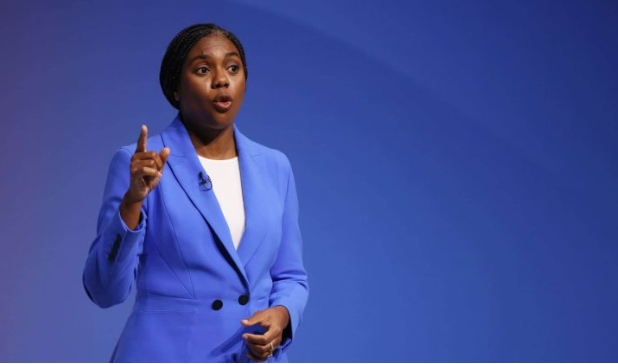By Kayode Sanni-Arewa
The administration of President Bola Ahmed Tinubu has called on the United Kingdom’s Conservative Party leader, Kemi Badenoch, to stop making disparaging remarks about Nigeria.
The Nigerian-born politician, sparked controversy in 2024 following repeated critical comments about her country of birth.
In her first address of the year at an event hosted by Onward, a British think tank focused on economic and social issues, Badenoch criticized Nigeria’s governance. She stated she did not want Britain to mirror what she described as Nigeria’s “terrible government,” which, in her words, “destroys lives.”
Emphasizing the need for reform and trust-building in governance, Badenoch argued that the Conservative Party was the right choice to steer the UK away from such pitfalls. She warned that without significant changes, Britain could risk adopting systemic flaws similar to those she attributed to Nigeria.
The remarks prompted a response from Daniel Bwala, the Special Adviser to President Tinubu on Policy Communications. In a post on X (formerly Twitter), Bwala urged Badenoch to avoid using Nigeria as a rhetorical tool to gain favor with her political base.
“I truly wish that sister Kemi Badenoch would avoid denigrating Nigeria, the country of her origin, as a weapon to please her far-right base,” Bwala wrote. He drew a parallel with UK Prime Minister Rishi Sunak, noting that Sunak had never criticized India, his ancestral home, to gain political advantage.
Bwala praised Badenoch’s intelligence and political accomplishments but expressed disappointment over her negative rhetoric about Nigeria. “She is smart, intelligent, and we are proud of her rise in UK politics, but we are equally saddened by her terrible rhetoric against Nigeria,” he added.
This development underscores ongoing tensions surrounding the portrayal of Nigeria on international platforms, particularly by individuals with ties to the country. It raises broader questions about the balance between constructive criticism and national pride in political discourse.

